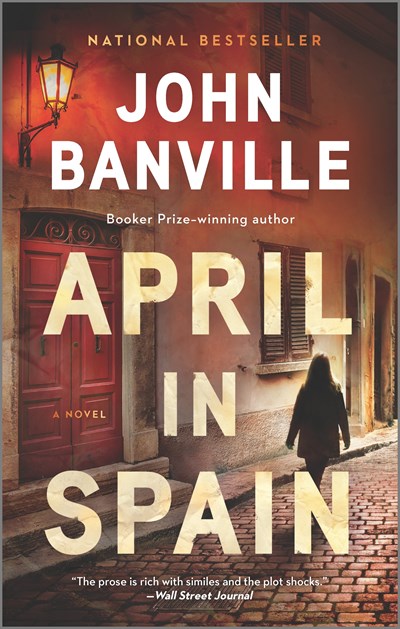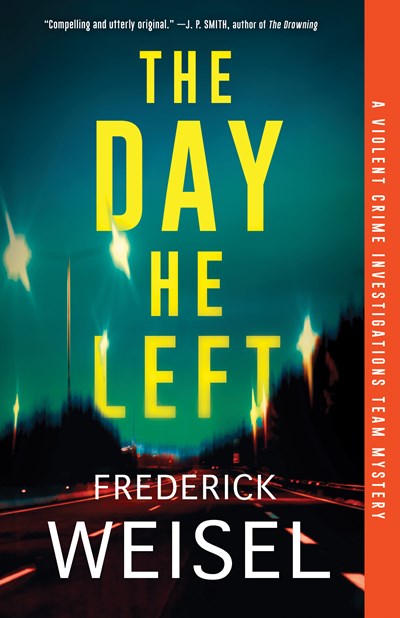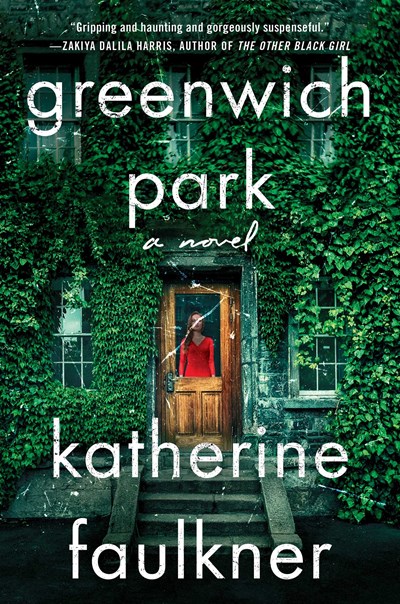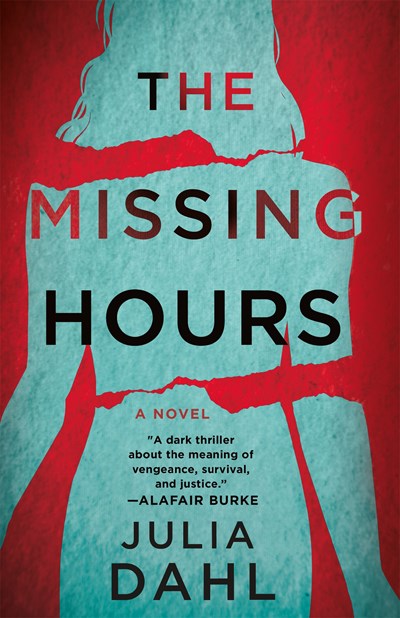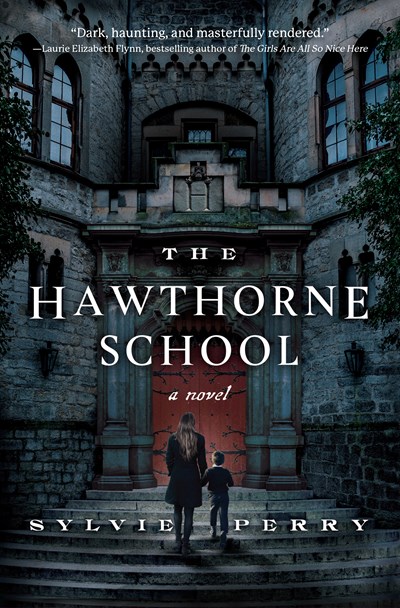John Banville invites us into the inner lives of Irish people and, through their loves and struggles, creates a composite view of modern Ireland. This eighth in the series named for retired medical examiner Quirke sees him reluctantly vacationing in Spain with his wife, Evelyn, a psychiatrist whose quiet love for Quirke is a highlight of the book. When an injured Quirke visits an ER, the Irish doctor who treats him is strangely familiar and later, at a thank-you meal she obviously loathes attending, behaves bizarrely. Back in Ireland, Quirke’s daughter, Phoebe, will frustrate readers through her relationship with superior-acting, controlling Paul. When Phoebe joins Quirke to tackle the mystery surrounding the Irish doctor, she sidesteps Paul and his aloofness only to face something much more sinister (warning: sexual abuse is involved though not graphically described). Love and fear are wonderfully juxtaposed here, and those who enjoy reading the former should try Irish author Donal Ryan’s The Spinning Heart. Fans of the more dangerous elements should be steered toward the Sean Duffy novels by Northern Ireland’s Adrian McKinty.
Henrietta Thornton
Rowland “Rowly” Sinclair and his wealthy Australian artist friends live a life of leisure except for solving crime; in this 11th outing (after A Testament of Character, 2020), they’re taking a languid trip through Asia, stopping at British Colonial outposts that allow them to remain of the empire even on the road. Their frivolities are ended when Rowly’s friend Danny Cartwright is murdered in Boston and Rowly announced as the surprise executor of Danny’s will. What they find stateside is a greedy family waiting for the will to be read and long-simmering anger that Danny, who was gay, had any say in their family’s fortune. The will doesn’t go the Cartwrights’ way, causing danger for Rowly and friends as well as some of the best writing of the book as Gentill portrays the loyalty and love—some of it less unrequited than previously—among this gang of affable eccentrics. Be aware that a past attempt at gay conversion therapy is described “off stage.” Gentill’s fans will be delighted with this latest installment; it’s also a great readalike for Amanda Allen’s Santa Fe Revival Mystery series, which too features an artist sleuth
The straight and not-so-straight lines connecting people and events, thoughts and dreams, form the framework of Weisel’s second book, after The Silenced Women (2021). The story starts with the disappearance of Paul Behrens, a staid middle-school teacher who leaves a message stating that allegations about him and a student aren’t to be believed. When a parent who shouldn’t be at the school is seen leaving Paul’s classroom, and the teacher’s brain-damaged veteran brother tells police that Paul is in the ocean, things rapidly turn scary. While puzzling over the head-scratching case, which enmeshes multiple families, betrayals, and secrets, police officer Eden Somers learns that a serial killer she pursued in the past has her home address and other personal details. Both cases, and the related victims, perpetrators, and investigators—especially the melancholy, philosophical Lieutenant Mahler—will keep readers wondering why love so often goes wrong and how split-second decisions can reverberate far beyond their origins. Philosophy gives way to a lengthy, gripping chase that leaves questions open for the next installment. Mahler will remind Donna Leon’s fans of Detective Brunetti, and those readers should try Weisel’s thoughtful series.
Fans of the Pretty Little Liars book and TV series and Shepard’s multiple other novels will come to this work looking for a mean girl to hate, and they’ll find it in Piper, the director of the preschool that serves the right kids in a moneyed California town. Andrea, Lauren, and Ronnie stick out like Target shoppers at Tiffany & Co. when they show up with their kids on the first day. They gravitate towards one another to survive the haughty sniffs from the vegan mac ‘n cheese set. Andrea is transgender and is hiding that she was suspected of pedophilia years ago; Ronnie works as a topless maid, which is the least of her secrets; and new-mom Lauren is struggling through what she has been told is postpartum rage. When Piper is attacked, the police focus on Andrea, Lauren, and Ronnie as culprits, and the women even begin to suspect one another. Shepard offers another insightful foray into the lives of privileged women, once more uncovering secrets, betrayals, and unexpected grace along the way. HBO is sure to come knocking again, but don’t wait–this is a perfect beach read, and ideal for readers who enjoyed Janelle Brown’s Pretty Things.
Former Cambridge students Helen and Daniel are a few months from the birth of their first child, after numerous pregnancy losses. Helen is understandably nervous, and it doesn’t help when her husband misses their first prenatal class. All she needs is brash, foul-mouthed mother-to-be Rachel sitting next to her and drawing attention. When the woman pours them both a large glass of wine and then drinks both glasses, Helen is horrified but too polite to say anything. Soon pushy, manipulative Rachel insinuates herself into every aspect of the expectant couple’s life, and Helen’s efforts to distance her new “friend” are about as useful as Lamaze breathing. Alongside that accelerating mayhem, to which Faulkner effectively adds urgency by showing the pregnancy weeks ticking by, is the story of Helen and Daniel’s friend Katie, who is a journalist reporting on a rape trial, and a look back at the group’s college days, when they faced a life-altering decision that still haunts. Faulkner gets right into the head of a troubled woman, also excelling at portrayals of more than one imbalanced friendship. This debut features some gasp-inducing twists, and is only slightly less astonishing all the way through. And that last line!
The latest by the enormously successful author of The Girl on the Train and Into the Water portrays destruction continuing after long-ago catastrophes. On one side we see successful (and smarmy) London author Theo and his family reeling after an accident that leaves Theo longing for someone to blame. Nearby geographically, but worlds away in life choices, lives Laura, the victim of a hit-and-run that has left her physically and mentally unstable, and who was, shall we say, known to a young man who has been found stabbed to death. As in The Girl on the Train and the many unreliable-narrator novels it inspired, readers will be left wondering until the very end whom to trust and what exactly happened on one fateful day. Hawkins is a top-notch storyteller, and her vividly drawn characters will evoke strong emotions in readers. Enjoyable too are the author’s frequent wry nods towards today’s trends in fiction and the difficulty in following up on a blockbuster novel. As well as Hawkins’ many fans, this is one for Kate Atkinson’s readers and all who enjoy a disparate cast of characters slowly revealing their connections.
Broke NYU student Trevor eats ramen noodles while his dorm neighbor Claudia, famously the daughter of a music producer, is more about the expensive Japanese restaurant down the street. But they’re thrown together when Claudia is assaulted. Claudia’s body tells her that the hours missing from her memory of the drunken night before included violent sex; physical hints aren’t necessary when her abuser posts a video of her rape. Dahl presents Claudia’s ordeal as both horrifyingly mundane—the campus health center has a well-worn rape protocol, and she’s forced to go through the bleak motions—and engagingly suspenseful. The young woman’s family seeks to save her and find the truth, while another rich kid’s family is battling to hide it. Since the details of the rape are unclear to Claudia, and the video is only briefly described, Dahl mainly focuses on the aftermath of the attack, sparing readers a detailed rape scene. What they get instead is a close look at the physical and mental torture of absorbing an attack; the ways in which kindness can be a salve yet a crushing contrast with hurt; and, most of all, a lesson that redemption is owed to every victim.
At first it seems some well-worn police procedural tropes will dominate the latest novel by bestselling Schaffhausen (Ellery Hathaway series). Our protagonist, a detective, is determined to find the serial killer that eluded her cop father, while wondering if she’ll ever find love in this relationship-destroying career. But some twists make the author’s turbulent latest different. The detective in question, Annalisa Vega, dated the son of one of the victims as a teen; the connection to her first heartbreak drives Vega to uncover the truth—and sometimes to go too far. Adding intrigue is that one of the killer’s last victims, Grace Harper, is an avid, insightful member of an amateur cold-case investigation club, the Grave Diggers, which at the time of Harper’s death was focusing on her killer. “Grace Notes,” journal entries on her investigative findings, will give readers the feeling of turning the case around in their hands as the narrative shifts back and forth in time and between Harper and Vega’s differing knowledge and motivations. Schaffhausen’s writing brings readers right into shadowy Chicago streets and family secrets from page one. This first in a new series is a must for readers of innovative police procedurals as well as fans of true crime shows.
Since Claudia Vera’s mom died, it’s just Claudia and her four-year-old son, Henry. She struggles to pay for the cheapest daycare in her Illinois town and is overjoyed when the exclusive Hawthorne School gives Henry a full scholarship, asking the awestruck mom only to volunteer at Hawthorne in return. Things soon turn decidedly odd. Claudia never sees any other parents, and the principal is increasingly insistent on Hawthorne’s unorthodox ways and on Claudia spending hours at the school doing unnecessary tasks. Oddness soon turns to a frightening effort to control—as the publisher’s discussion questions note, this book can be read as an allegory on narcissistic abuse—and Claudia finds herself in the most confusing and terrifying situation of her life. Scary, gothic schools are often found in mysteries, but this one differs in only featuring psychological horror (author Perry is a psychologist), no ghostly terrors. It also differs in presenting a Latinx mom and the use of Spanish (which you don’t need to understand to read the book) to both propel the narrative and help the protagonist. Perry excels in getting inside the head of an unsure mom and has written one of the most unusual and best mysteries of 2021. Fans of psychological mysteries and of the movie Get Out are the audience for this.
Bates, Sonya. Inheritance of Secrets. November 2021. 432p. HarperCollins.
After her mother left when Juliet was nine, she grew up with her German grandparents, Karl and Grete. The three are close, and she’s devastated when they’re murdered. Even more upsetting, investigators claim that Karl was a long-pursued Nazi war criminal. That present-day story, set in Australia, alternates with the wartime romance tale of Karl and Grete, who love their country but are kind to Jewish neighbors, and who promise to reunite after Karl returns from the front. Most of this earlier tale takes place before and after the war, leaving what Karl did during the conflict a mystery that Juliet is desperate to unravel. This is not a story of Nazi redemption; rather, it’s a thoughtful, immersive look at pre-and postwar life in a destroyed Europe and an examination of the scars left for succeeding generations. Canadian author Bates drops readers right into this family’s heartache and struggle for togetherness. This is Bates’s first novel for adults, and readers will want more; in the meantime, steer them toward Anna Lee Huber’s Verity Kent series, which also features WWII melancholy-tinged romance.

